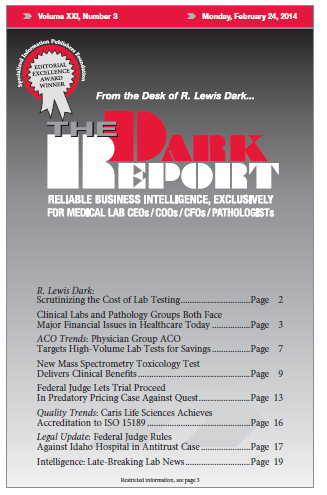CEO SUMMARY: Four California labs have charged that Quest Diagnostics engaged in predatory pricing in a case filed originally in November 2012. After the lawsuit was amended last summer and fall, U.S. District Judge William H. Orrick III heard various motions in the case. On February 6 he ruled that the case could proceed against …
Federal Judge Lets Trial Proceed in Case against Quest Read More »
To access this post, you must purchase The Dark Report.


